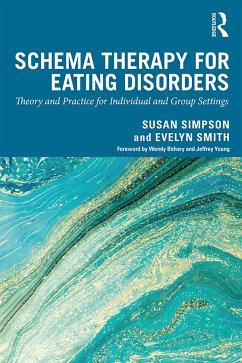
Creative Methods in Schema Therapy
Advances and Innovation in Clinical Practice
Herausgeber: Heath, Gillian; Startup, Helen
Versandkostenfrei!
Versandfertig in 1-2 Wochen
160,99 €
inkl. MwSt.
Weitere Ausgaben:

PAYBACK Punkte
80 °P sammeln!
Creative Methods captures current trends and developments in Schema Therapy in rich clinical detail, with a vividness that inspires and equips the reader to integrate these new ways of working directly into their practice.














